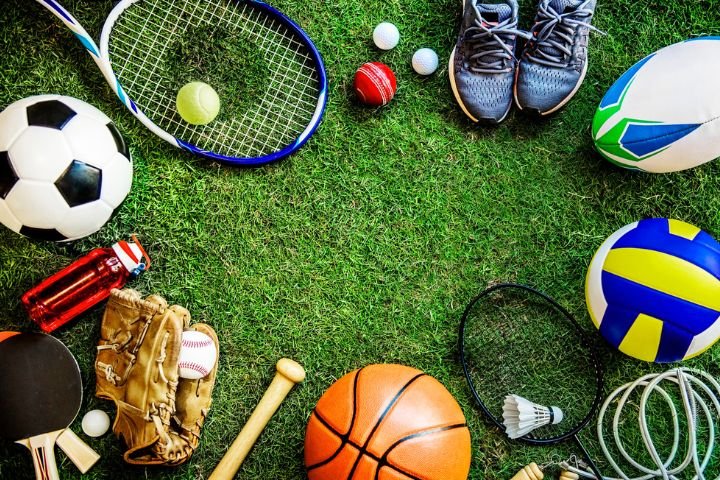
Sports have been an integral part of human culture for centuries, uniting people across continents, ages, and backgrounds. Whether it’s a local soccer match, an international Olympics event, or casual morning jogs, sports play a significant role in shaping our physical health, mental well-being, and social lives. But sports are much more than just games or competitions — they are powerful tools for personal growth, community building, and even global diplomacy.
In this article, we will explore the many facets of sports and why they continue to captivate millions worldwide.
Physical Benefits: Building Stronger Bodies
At its core, sports promote physical fitness and a healthy lifestyle. Regular participation in sports helps develop cardiovascular strength, muscular endurance, flexibility, and coordination. For children and teenagers, sports are essential in fostering healthy growth, improving motor skills, and establishing lifelong exercise habits.
Engaging in sports also combats sedentary lifestyles, which have become increasingly common with the rise of screen time and desk jobs. From running and swimming to team sports like basketball and soccer, physical activity improves energy levels, boosts metabolism, and reduces the risk of chronic diseases such as diabetes, obesity, and heart conditions.
Moreover, sports teach discipline through structured training and practice, encouraging athletes to set goals and work consistently toward achieving them.
Mental Health: The Psychological Impact of Sports
Beyond the physical, sports have profound mental health benefits. Playing sports releases endorphins — natural mood elevators — which help reduce stress and anxiety. Regular physical activity is linked to improved sleep, enhanced concentration, and better memory retention.
Sports also teach important psychological skills like resilience, patience, and focus. Overcoming challenges on the field, handling wins and losses gracefully, and pushing through physical exhaustion build mental toughness that carries over into everyday life.
Team sports, in particular, foster a sense of belonging and camaraderie. Being part of a team boosts self-esteem, social skills, and emotional intelligence, combating feelings of isolation and loneliness. These benefits make sports a valuable tool in mental health therapy and rehabilitation programs worldwide.
Sports and Character Building
One of the most enduring lessons sports offer is the development of character. Fair play, respect for opponents, and adherence to rules are foundational principles in almost every sport. These values translate into ethical behavior and integrity in personal and professional life.
Sportsmanship — showing respect and kindness regardless of the outcome — teaches humility and grace under pressure. The competitive spirit encourages individuals to push beyond their comfort zones, fostering confidence and a growth mindset.
Many successful leaders and professionals attribute their achievements to lessons learned on the playing field. The discipline, teamwork, and strategic thinking developed through sports are transferable skills that open doors to countless opportunities.
History will be kind to me for I intend to write it. There is nothing either good or bad, but thinking makes it so. Do not go gentle into that good night.
Community and Social Impact
Sports have a unique power to bring communities together. Local clubs, school teams, and neighborhood leagues create social bonds that transcend socioeconomic, racial, and cultural barriers. Sporting events serve as social gatherings where people celebrate shared passions and local pride.
On a larger scale, sports act as a platform for social change and awareness. Initiatives like “Sport for Development” use athletics to promote education, gender equality, and peacebuilding in vulnerable communities worldwide.
Major international events like the FIFA World Cup or the Olympics unite nations in a spirit of friendly competition and mutual respect. These events showcase not only athletic talent but also cultural exchange and diplomacy, reminding us of our common humanity.
Economic Impact of Sports
The sports industry is a massive economic engine, generating billions of dollars globally. From ticket sales and merchandise to broadcasting rights and sponsorship deals, sports fuel jobs and business growth in multiple sectors.
Professional leagues and tournaments provide livelihoods for athletes, coaches, medical teams, and countless support staff. Local economies benefit from tourism, hospitality, and infrastructure development tied to major sporting events.
In recent years, the rise of e-sports has added a new dimension to the sports economy, engaging millions in competitive gaming with lucrative prize pools and sponsorships.
Challenges in Modern Sports
Despite its many benefits, the world of sports faces challenges. Issues such as doping, corruption, and unethical practices sometimes mar the spirit of fair competition. Athlete burnout and injuries are growing concerns, especially with the increasing intensity of training from a young age.
Inclusivity remains a key topic, with ongoing efforts to ensure equal opportunities for women, differently-abled athletes, and underrepresented communities. Ensuring safety, fairness, and accessibility is critical for the future growth and integrity of sports.
The Future of Sports
Technology continues to revolutionize sports in exciting ways. Wearable devices and analytics enhance training and performance, while virtual reality creates immersive fan experiences. Social media platforms have transformed how fans engage with athletes and teams, making sports more interactive and global than ever.
Additionally, growing awareness around mental health and athlete welfare is encouraging a more holistic approach to sports training and competition. Sustainability is also gaining attention, with major events adopting eco-friendly practices.
Conclusion
Sports are far more than just games; they are a universal language that speaks to our shared aspirations for health, happiness, and connection. From the physical and mental benefits to their power in shaping communities and economies, sports remain a vital part of human life.
Whether you are an athlete, a fan, or someone who enjoys the occasional game, sports offer lessons and experiences that enrich us all. They remind us that with passion, perseverance, and teamwork, we can overcome challenges and achieve greatness — both on and off the field.
Also Read: Best VPNs for Gaming: Top Picks for Speed, Security, and Lag-Free Play
